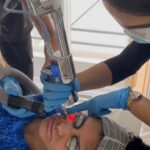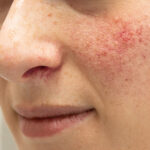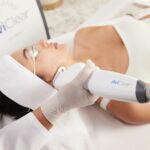
In the 2020s, I often find myself wondering how it is possible that we are currently living in what is simultaneously the best of times and the worst of times for modern day science. While science and technology advances beyond recognition (gene-edited babies!), we are paradoxically also seeing the rise of medical practice (particularly as seen – from my own focussed vantage point – related to skin and nutrition) that is not necessarily supported by good research. Are we truly in the grip of a post-truth world?
What does this mean? Well, if you are unfamiliar with the concept, “post-truth” is often used to describe “circumstances in which objective facts are less influential in shaping public opinion that appeals to emotion and personal beliefs”. Or, to put this another way, “a situation in which people are more likely to accept an argument based on their emotions and beliefs, rather than based on facts.”
The problem with the post-truth world is that it allows pseudoscience to flourish. Social media, blogs, forums and discussions groups are excellent at attracting “like-minded” people and allowing them to connect in a way that was never possible before. No one would argue, for example, that skin positivity hasn’t been a positive influence for many people suffering alone. Yet the dangers which we do not focus on anywhere near enough is the rapid, wildfire dissemination of poor-quality information making its way to our feeds, newspapers, magazines or TV on a daily basis. This is the real “echo chamber” effect on our views. If you only listen to people with the same viewpoints as you, all it does is reinforce your prior beliefs – it doesn’t necessarily educate you to think more broadly or critically about the information with which you are faced.
Scientific truth is never based on personal beliefs. Rather, it is confirmed with evidence and facts. Facts are not accepted without testing hypotheses – sometimes accepting and sometimes rejecting these – and then multiple verifications. Whereas traditional beliefs, clinical experience and expert opinion are not be ignored, they must not be overvalued without appropriate questioning, validation and testing. Pseudoscience raises its ugly head when these types of knowledge assume the role of science itself. As a practicing doctor, my opinions and beliefs are not more important than the facts we have at this moment in time. Science is constantly evolving, changing and progressing as our evidential knowledge improves.
There will be times I will say things you don’t want to hear when it comes to skin and health; acne being a chronic illness is one that I frequently encounter as well as the links (or otherwise) between diet and acne. But my job as a doctor isn’t a popularity contest or to reinforce a belief you may already have. My job is to make sure that I give you the best advice based on reading research and practicing medicine so you can be armed with the facts as they stand, and make informed decisions about your health.
So now that we are in a post-truth world, what do we do?
Seek other viewpoints. Be aware of your echo chamber and widen your networks and sources of information. Double-check your facts.
- Listen to experts and check their credibility. Don’t assume a snazzy website, followers or a fancy-sounding diploma means everything – look beyond the shiny veneer.
- Think before you share your information. Is it a good source? Or are you adding fuel to the fire of misinformation for others?
- If you are a scientist or medic then share your knowledge and information – if we don’t do it, others will fill that gap. If you see a colleague being taken down for standing up to bad science then step in.
- Be open to the idea that science is changing and therefore over time advice may also change. Nothing is absolutely fixed in life!
- Read beyond headlines – they are simply there to grab your attention and may be at odds with what is being reported.





